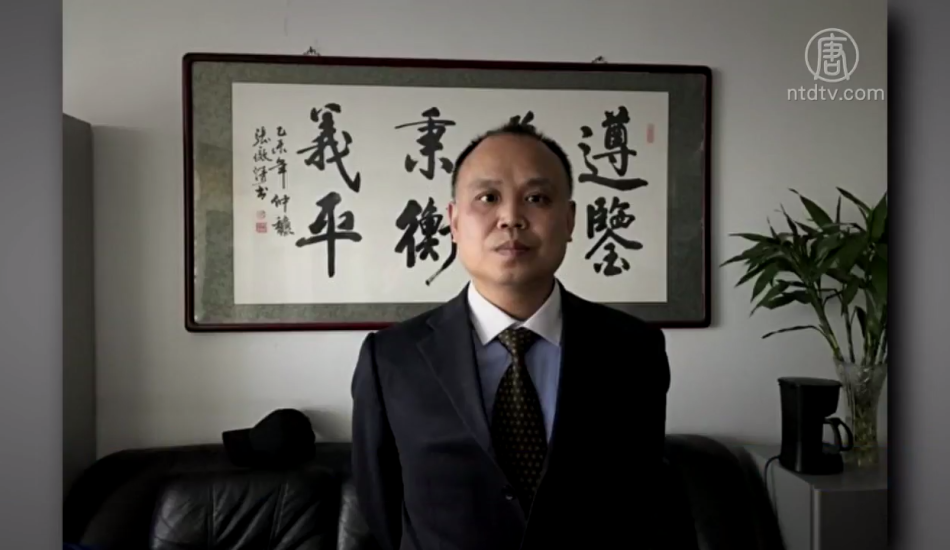
Human rights lawyer Yu Wensheng was reportedly charged Jan. 27 with “inciting subversion of state officials” after writing a letter calling for reform to China’s constitution. Yu was arrested outside his home in Beijing nearly two weeks ago for “disrupting a public service,” just hours after he wrote an open letter urging democratic changes, including multi-party presidential election. His wife was summoned on Jan. 27, at which time she learned of the more serious incitement charge now against him. Authorities searched Yu’s office and residence, and seized documents and data related to his more recent cases. Yu is reportedly being held under “Residential Surveillance in a Designated Location” (RSDL) and is out of communication with his family and attorney. Those held under RSDL can be detained for six months with no outside communication. In addition, the current charge carries a maximum prison sentence of 15 years.
Since July 2015, more than 300 human rights activists and lawyers have faced charges in China. Yu himself was detained for 99 days in 2014 “for showing public support for the pro-democracy Occupy Central movement in Hong Kong.”
From Jurist, Jan. 30. Used with permission.
Note: Hong Kong Free Press reports that Yu was seized by a SWAT tea as he left his Beijing apartment to walk his son to school on Jan. 19, and is currently being held at secret location. See our last post on the so-called “709 Crackdown.”
Photo: Vision Times





Constitutional reform for China?
Note that the arrest of Yu Wensheng comes just as President Xi Jinping himself called for "revising the constitution" in an address to representatives of non-Communist parties (which are tolerated because they are insignificant and formally accept the leadership of the CPC) and the All-China Federation of Industry and Commerce (representing the new private-sector capitalist elite). This according to a Xinhua report of Jan. 22.
Details are vague, but this is presumably not a call for greater openness or pluralism, given that the CPC's own constitution was just revised to officialy enshrine Xi Jinping Thought. Or did Xinhua actually mean the CPC constitution when it referred to "China's constitution"?
Chinese activists shave heads to protest persecution of husbands
The wives of four of China’s most prominent rights lawyers and activists shaved their heads in protest over what they called the "persecution" of their husbands by the government. Four wives of lawyers detained during a July 2015 sweep known as the 709 crackdown gathered in the central park of a Beijing apartment complex and cut off their hair in front of neighbors and a small group of invited foreign journalists.
The women took turns shaving each other’s heads before heading to the Supreme People's Court to petition over their husbands' treatment.
Li Wenzu, who says she has been unable to visit her husband, rights lawyer Wang Quanzhang, since he went missing in the 2015 crackdown, told reporters that judges in his trial had unlawfully delayed proceedings and prevented her from appointing a lawyer of her choosing. Wang is being held in Tianjin on charges of subverting state power.
"We can go hairless, but you cannot be lawless," the women announced at the ceremony, a pun in Chinese, as the words for "hair" and "law" sound similar. (Reuters, Dec. 17)
Chinese human rights lawyer Wang Quanzhang faces trial
The closed trial of detained human rights lawyer Wang Quanzhang began Dec. 26 in Tianjin amid protests. Wang and approximately 300 other lawyers and legal activists were arrested during the 709 Crackdown on July 9, 2015. Though most of the detainees were eventually released, Wang has not been seen in three years, despite international pressure to release him and other detained human rights activists.
Amnesty International called the trial a "sham" and a "cruel charade." Wang's charges include "seriously harm[ing] the country's security and social stability" and "maliciously inciting" opposition to the Chinese government and could carry a penalty of life imprisonment. The trial ended on Wednesday with no verdict announced.
Wang's wife Li Wenzu has faced surveillance and harassment from Chinese authorities and was barred from attending her husband’s trial along with representatives from the US, UK, Germany, and Switzerland who tried to gain entry. (Jurist)
China sentences human rights lawyer to four years
The Tianjin Second Intermediate People's Court on Jan. 28 found human rights lawyer Wang Quanzhang guilty of "subversion of state power" and sentenced him to four-and-a-half years in prison. In addition, Wang was stripped of his political rights for five years. He was one of approximately 250 lawyers and activists detained in 2015, as part of what is now known as the 709 crackdown, and was the last of the group still awaiting trial. (Jurist, The Guardian)
China sentences another rights lawyer to four years
Human rights lawyer Yu Wensheng on June 18 was sentenced to four years imprisonment and deprivation of political rights for three years following a conviction for “inciting subversion of state power.” Yu was arrested in Xuzhou in January 2018 and was also charged with obstructing the duties of public officers. He previously circulated an open letter calling for reforms to China’s constitution and said President Xi Jinping’s regime amounted to “totalitarian rule.” Yu represented human rights activists including Falun Gong followers and lawyer Wang Quanzhang. (HKFP)